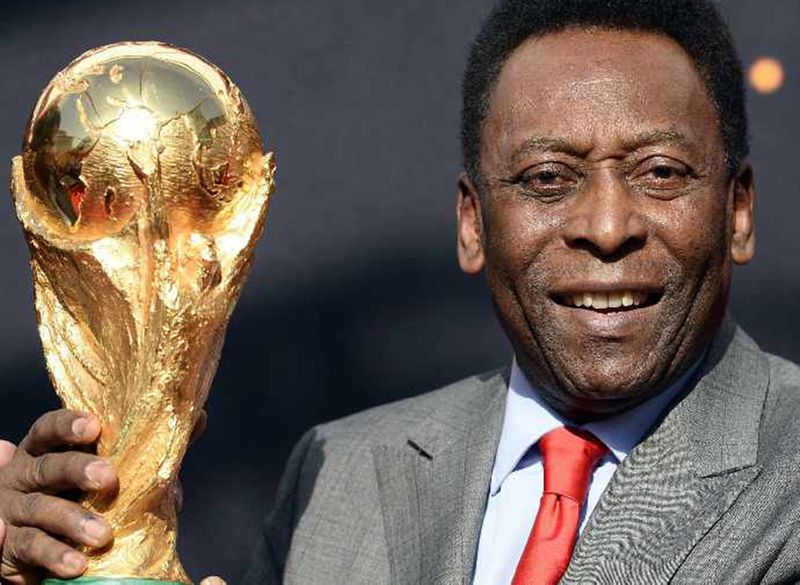[ad_1]
The best strategy to seize the achievements of Pele, is to tally the numbers. In 20 years, he scored 1,283 objectives — 1,000 of them earlier than he was 30 and 95 sporting the nationwide group colors. He helped convey dwelling three of Brazil’s 5 World Cups, a feat unequalled by every other participant to at the present time.
However soccer will not be a ledger, and Pele’s magic doesn’t slot in a trophy room. When most cancers killed him at age 82, the nation misplaced a little bit of its soul. From 1956 to 1977, he introduced grace and majesty to the world’s hottest sport.
He additionally turned Brazil’s most enduring model, the boyish star with a halogen smile, who put mushy energy briefly pants and joyfully conflated the nation’s title along with his personal.
Ask the Nigerians, who noticed combatants of their bloody civil warfare briefly put down their weapons to look at Pele carry out in a 1969 exhibition recreation.
Or the Brazilian-led United Nations peacekeepers who in 2004 promoted a “peace match” in strife-torn Haiti, parading their nationwide group stars atop armoured automobiles by way of the streets of Port-au-Prince — a brazen wager on the type of soccer diplomacy that Pele invented. If the truce was short-lived, Pele’s aura lingered, garnering Brazilian travellers on the spot bonhomie.
However Pele’s most enduring impact was at dwelling. Greater than a star athlete, he was an emblem of a nation in transformation. He got here up in an period when Brazil was stirring to worldwide ambitions and world-class business. Bossa nova was on the Victrola and Carnaval cranked the road social gathering as much as 11.
Dancing emblem of Brazilian confidence
Glissading over the grass, Pele made not possible strikes look easy and despatched parabola kicks dwelling from ridiculous angles, with proper foot and left, turning even the missed shot right into a factor of magnificence. He appeared a dancing emblem of Brazilian confidence and aspiration.
Within the Nineteen Eighties, Brazilian cinemas would play grainy reels of basic soccer matches, scored to the infectious sound of Que bonito e, or “how lovely it’s.” This was the sport and the beat that will outline Brazil, and Pele can be its icon.

Pele by no means leveraged his charisma for political ends. He repeatedly declined invites to run for workplace and even be a part of a celebration
This fawning consideration introduced Pele unflattering comparisons — not least with Muhammad Ali, his up to date and worldwide coeval, whose outspokenness in opposition to racism and the Vietnam Warfare made him each an exemplar of political defiance and a goal of official rancour.
Pele was additionally a beacon. Futebol, the Brazilian anthropologist Roberto DaMatta as soon as advised me, isn’t simply bread and circus. It’s a recreation that Brazilians know is honest, has clear guidelines and is performed on a stage taking part in area.
What counts on the pitch is the way you play, not your color, your checking account or who you understand. “Pele turned king as a result of he labored for it clearly, on an open, inexperienced area,” DaMatta wrote lately.
In a rustic as socially fractured and unequal as Brazil, the place cash is energy, Pele represented one other chance. He nonetheless does.
Mac Margolis, an adviser to the Brazilian Igarape Institute, writes often about Latin America. He’s the creator of “The Final New World: The Conquest of the Amazon Frontier.”
[ad_2]
Source link
